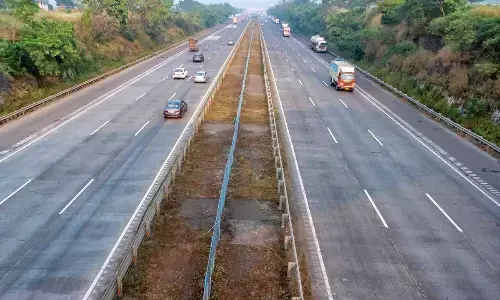Financial security gains prominence post-Covid

India's awareness towards life insurance grew significantly over the last two years due to COVID, and the need for financial security has gained priority among people, according to Max Life's annual flagship survey.
India's awareness towards life insurance grew significantly over the last two years due to COVID, and the need for financial security has gained priority among people, according to Max Life's annual flagship survey.
Launching the 4th edition of the India Protection Quotient(IPQ) survey on Wednesday, the life insurer said the 'Protection Quotient' of urban India has moved up 3 points to 50, witnessing a gradual rise from previous IPQ editions.
The trend line reflects a steady growth in the country's overall financial protection that has led to prioritizing financial security over all other aspects. As per the survey, with the COVID fears receding now, the policyholders in urban India have re-aligned their long-term objectives of children's education and retirement planning.
The survey was conducted online during December 10, 2021 to January 14, 2022 with as many as 5,729 respondents across 25 Indian cities. Even as COVID-induced anxieties have reduced, wellbeing has become a key concern, as per the IPQ, and the rising security levels across all zones have led to an overall increase in Protection Quotient.
The survey indicates a marginal increase in urban India's knowledge index from 68 to 69, while the security index increased by 5 points to 56. The survey conducted by Max Life in partnership with Kantar, in a way is a compass to show how policyholders are behaving. This year, the survey revealed that the awareness towards life insurance has gone up compared to the previous year, Prashant Tripathy, Managing Director and CEO, Max Life Insurance said in an interaction.
"I must say that when COVID happened, there was a drastic increase in awareness. I am very happy that higher levels of awareness are continuing. Despite COVID settling down, I think people are feeling more secure which is good news. Awareness is translating to buying. If we look at the ownership of insurance buying at term level, saving level, unit linked level - across all of them, we have seen improvement," he said.
As per the survey, metros, as well as tier 1 and 2 cities witnessed an increase in the protection index. Tier 2 saw a significant rise in life insurance awareness from 61 to 68. This indicates a strong potential in tier 2 markets for life insurance adoption. Tripathy said that people are buying multiple policies now, they now have far more level of understanding, ownership and awareness across all levels of products.
"Term insurance witnessed an uptake in the last two years, with ownership rising to a significant 43 per cent from 39 per cent last year." The survey also reflects an increased ownership of other life-insurance products amongst urban Indians such as savings and market-linked plans. "The last two years have been indeed challenging due to the pandemic, but we also witnessed an upside with India developing financial resilience. This is evident from the insights in IPQ 4.0 that shows a strong sense of financial security amongst urban Indians," said Tripathy.
However, he also pointed towards challenges for the industry, as 1 in 4 urban Indians associate term plans with high premiums. "Despite the positive movement, the survey also indicates key challenges for the industry that need to be addressed. While India has realized the real value of term insurance, existing barriers are limiting efforts to drive increased awareness and adoption till the last mile.
"The IPQ study will help us create customer-centric measures to resolve these issues, while enabling collective responsibility to build a higher level of trust with customers," he added. There is a growing significance of sum assured while buying term insurance. More than half of urban Indians feel their term plan cover is insufficient and cover/sum assured, riders and customization have become key term purchase parameters, as per the study. "People are now giving priority to the sum assured rather than to premium or the frequency of premium outgo,'' Tripathy said.
The survey also noted that millennials were at par with non-millennials in term insurance buying, and also women were at par with men in protection index, as there has been a significant increase among women in security levels. Salaried segment noted improvement across all key indices, self-employed witnessed fall in term insurance ownership.
Soumya Mohanty, Managing Director and CCO, Kantar Insights, South Asia said IPQ is an important financial signifier for the country, especially in the current times. "With IPQ 4.0, we have administered a complete digital survey across a robust sample that has given us unique insights on how urban India has financially evolved. The one key outcome that emerges from the survey, is the significant increase in security levels of the urban milieu. Despite the unprecedented impact of Covid-19, this is an important indication of the growing financial consciousness in the country," Mohanty said.








